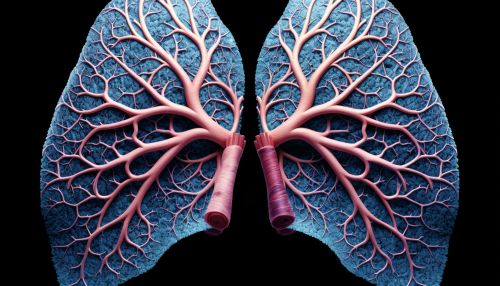Cystic fibrosis
Overview
Cystic fibrosis (CF) is a genetic disorder that primarily affects the lungs, but also the pancreas, liver, kidneys, and intestine. It is characterized by the production of abnormally thick, sticky mucus, leading to the blockage of the pancreatic ducts, intestines, and bronchi and often resulting in respiratory infection.


Genetics
Cystic fibrosis is an autosomal recessive disorder. This means that an individual must inherit two copies of the defective CF gene – one from each parent – to have the disease. If an individual inherits only one copy, they will not develop the full-blown disease but will be a carrier and could pass the gene to their offspring.
The gene responsible for CF is the cystic fibrosis transmembrane conductance regulator (CFTR) gene, located on the long arm of chromosome 7. This gene codes for the CFTR protein, which functions as a channel across the membrane of cells that produce mucus, sweat, saliva, tears, and digestive enzymes.
Symptoms and Complications
The symptoms and severity of CF can vary widely from person to person. Some people have serious problems from birth, while others may not experience problems until adulthood.
The most common symptoms and complications of CF include:
- Persistent cough with thick mucus
- Wheezing and shortness of breath
- Frequent lung infections
- Bulky stools or difficulty with bowel movements
- Poor growth or weight gain in spite of a good appetite
- Frequent greasy, bulky stools or difficulty with bowel movements
- Chronic or severe constipation
- Nasal polyps
Diagnosis
Diagnosis of CF can be challenging due to the wide variability in symptoms and severity. The standard diagnostic test for CF is the sweat test, which measures the amount of salt in the sweat. High levels of salt would suggest that the individual has CF.
Other diagnostic tests include genetic testing to identify the CFTR mutations and a test to measure the amount of salt in the sweat.
Treatment
While there is no cure for CF, there are treatments available that can help manage symptoms, slow disease progression, and improve quality of life. These include:
- Airway clearance techniques to help clear thick, sticky lung mucus
- Inhaled medicines to open the airways or thin the mucus
- Pancreatic enzyme supplement to improve the absorption of vital nutrients
- Multivitamins for additional nutrition
Prognosis
The prognosis for individuals with CF has improved significantly over the past few decades, thanks to advancements in treatment and care. However, the disease is still life-limiting, with many individuals with CF not living past their 40s or 50s.
